Election 2015: Fear dominating election campaign
- Published
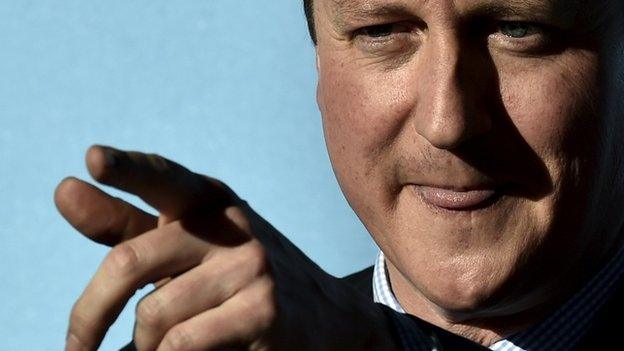
David Cameron focusing on the economy
In the early 1960s, before the birth of smartphones, before the retreat from privacy, the US historian Daniel Boorstin wrote a groundbreaking book called The Image.
Boorstin was troubled by the emergence of what he called "pseudo" events, increasingly presented as news.
"It is not spontaneous," he said, "but comes about because someone has planned, planted or incited it... it is planted primarily for the immediate purpose of being reported or reproduced."
I have been reminded of this during the current election campaign.
There are daily events but, certainly with the two main parties, the general unscreened public is rarely invited.
Photo calls are arranged to provide the backdrop for a campaign.
I am travelling with David Cameron's team.
It is a campaign geared to exclude the unexpected, the random encounter.
Gavin Hewitt says David Cameron has a different message for his audiences in Scotland, Northern Ireland and Wales
At events, microphones that could pick up a stray remark are kept at a distance.
For the political class has bought into the narrative that Gordon Brown's campaign unravelled when an unguarded microphone caught him referring to a woman - Gillian Duffy - as that "bigoted woman".
Similarly it was regarded as a defining moment when Tony Blair was ambushed by Sharon Storer who said to his face: "All you do is walk around and make yourself known but you don't do anything to help anybody."
Not decisive
But elections are rarely decided by gaffes or unguarded moments.
That was proved by Ronald Reagan who, at one point, boldly declared "all the waste in a year from a nuclear plant can be stored under a desk".
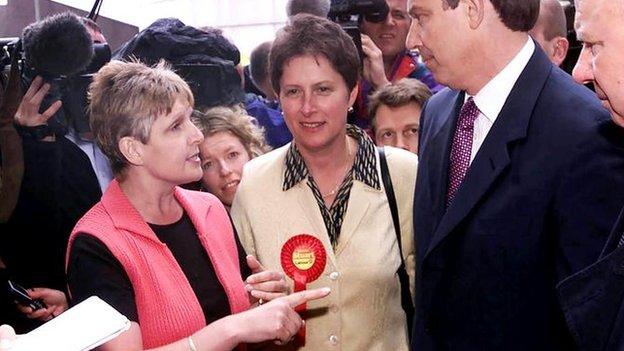
Sharon Storer took on Tony Blair on the campaign trial
It didn't hurt him.
When I was covering the Obama campaign in 2008 it did not fatally wound Barack Obama when he spoke of "bitter working-class Americans who cling to guns or religion".
In Britain, the political rally, open to the general public, is all but extinct.
The reality of the election trail is mediated through highly choreographed TV scenes.
Party leaders are wary of crowds, of hecklers; above all they fear unscripted moments leading the evening news.
More spontaneity
Elsewhere in Europe, campaigning is more unbuttoned.
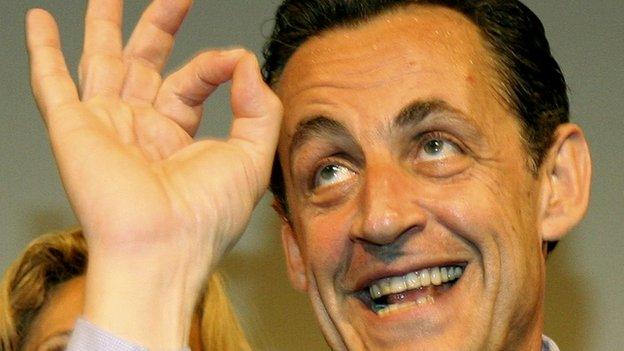
Nicolas Sarkozy: Not afraid to be controversial in public
They ride out the hostile crowd.
I have attended large public rallies in Paris, Rome and Berlin.
I have stood and watched an unflappable Angela Merkel in Darmstadt continue speaking against a background soundtrack of noisy horn-blowing protestors.
In Milan, I saw hecklers interrupt Silvio Berlusconi; he paused and began bouncing up and down as if on a football terrace while his supporters drowned out the protestors.
After almost every campaign-stop, Francois Hollande worked the crowd regardless of their loyalties.
His predecessor Nicolas Sarkozy once even turned on a voter urging him, in rather colourful language, to get lost, you idiot.
In the UK, the instinct of the major parties is to shun the crowd, the unchecked rope-line, the hidden dangers of the town square.
Defensive strategy
David Cameron's strategy is defensive, to stake his claim on his economic record.
His effortless charm - much admired by Angela Merkel and others - is replaced by a politician more tightly-wound.
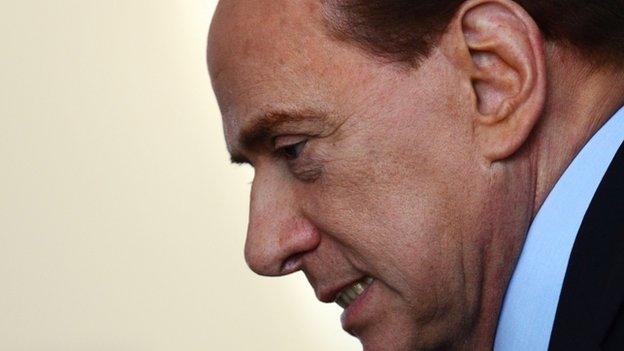
Silvio Berlusconi took on hecklers
In private he remains easy and relaxed but in Manchester, at the debate, his camera stare was more fixed as if he had been told not to stray from his core much-honed message.
It is a campaign built around the economy, built around the reduction in unemployment, built around growth.
David Cameron's team knows the election will be won or lost on the success or failure of embedding that economic message.
Sometimes it is said of David Cameron that he wears his beliefs lightly; ideas can be discarded like unwanted clothes.
What became of the born again environmentalist with the huskies in Svalbard?
Or what became of the Big Society which he described as his "big passion"?
Now it is all about money in the pocket.
"Low taxes go to the heart of what I believe in as a Conservative," he tells an audience in Bristol, external.
There is no such thing as public money, he insists, only taxpayers' money.
Narrow battleground
So, in truth, the election battleground is narrow.
Labour argues, external that average families are worse off, having lost out through VAT rises and benefit cuts.
Millions pay more, they say, while millionaires pay less.
They paint the Tories as the party of the few.
The Conservatives portray a future Labour government as a "nightmare" world of higher taxes and debt.
In countless different ways those two narratives will be argued over until polling day.
It may make tactical sense to focus narrowly on the economy and to try to exclude the unexpected but in Britain the campaign trail can, at times, feel like Boorstin's pseudo events.
It needs more of the unscripted, more of the unexpected, more from Britain's beating heart.
- Published7 April 2015
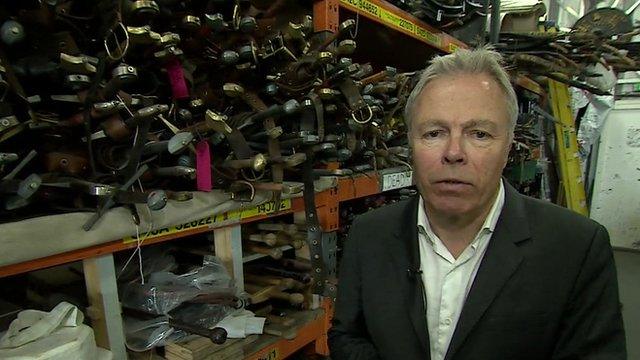
- Published19 February 2015
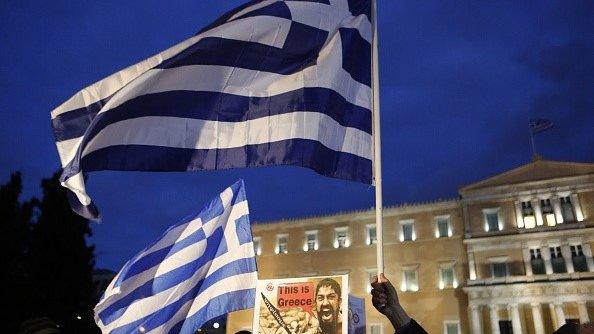
- Published17 February 2015
- Published17 February 2015